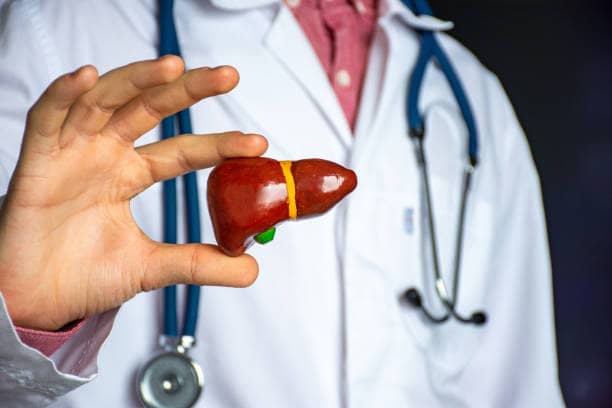How to cure hepatitis B : Hepatitis B is a viral infection that primarily affects the liver. It is a significant global health concern, with over 250 million people estimated to be chronically infected worldwide. This infection can lead to severe liver damage, cirrhosis, and even liver cancer if left untreated. However, advances in medical science have provided effective treatment options to manage and even cure hepatitis B. In this comprehensive guide, we will delve into the various strategies and approaches for treating hepatitis B.

Understanding Hepatitis B :
Hepatitis B is caused by the hepatitis B virus (HBV), which is transmitted through contact with the blood, semen, or other body fluids of an infected person. The virus targets the liver, leading to inflammation that can be both acute and chronic. While acute infections may resolve on their own, chronic hepatitis B infections require medical intervention.
Assessment and Diagnosis :
Before initiating treatment, a proper assessment and diagnosis are essential. Healthcare providers use blood tests to measure the levels of HBV antigens and antibodies, as well as liver function tests to evaluate the extent of liver damage. They may also use imaging studies such as ultrasound, CT scans, or MRI to assess the liver’s condition.
Treatment Strategies :
- Antiviral Medications: Antiviral drugs are the primary treatment for chronic hepatitis B. The goal is to reduce the viral load, alleviate liver inflammation, and prevent further liver damage. Commonly prescribed antiviral medications include entecavir, tenofovir, lamivudine, and adefovir. These drugs work by inhibiting the replication of the virus.
- Interferon Therapy: Interferon is a type of protein that can stimulate the immune system’s response to the virus. Interferon-based therapies are administered as injections and are typically used in specific cases, such as when antiviral drugs are ineffective or not recommended.
- Combination Therapy: In some cases, healthcare providers might recommend a combination of antiviral drugs or interferon therapy to enhance treatment efficacy. The choice of therapy depends on factors such as the patient’s overall health, the stage of the disease, and the presence of other medical conditions.
- Liver Transplant: In advanced cases where the liver is severely damaged, a liver transplant might be the only option. Transplants are considered when the liver’s ability to function is compromised, and other treatments have failed. However, due to the limited availability of donor organs, this is typically reserved for severe cases.
Monitoring and Follow-Up :
Once treatment has been initiated, regular monitoring is crucial to assess the treatment’s effectiveness and manage any potential side effects. This involves periodic blood tests to measure viral load and liver function. Adjustments to the treatment plan may be made based on the results.
Lifestyle Modifications :
In addition to medical treatment, certain lifestyle modifications can play a vital role in managing hepatitis B:
- Alcohol Avoidance: Alcohol can exacerbate liver damage, so it’s important to avoid or limit alcohol consumption.
- Healthy Diet: A balanced and nutritious diet can support liver health. Patients are often advised to reduce their intake of processed foods, saturated fats, and added sugars.
- Regular Exercise: Engaging in regular physical activity can help improve overall health and aid in weight management.
- Hygiene and Prevention: To prevent spreading the virus to others, patients should practice good hygiene, including proper handwashing and avoiding sharing personal items like toothbrushes or razors.
Vaccination :
Vaccination is a critical preventive measure against hepatitis B. It’s recommended for all infants, as well as adults who are at higher risk due to factors such as healthcare work, close contact with infected individuals, or travel to regions with high hepatitis B prevalence.
Promising Research and Future Outlook :
The field of hepatitis B treatment continues to evolve, with ongoing research focusing on new antiviral agents and innovative therapies. One area of interest is developing therapies that can achieve a functional cure, meaning sustained suppression of the virus without the need for lifelong treatment.
Managing Coexisting Conditions :
Explain how individuals with hepatitis B should manage other medical conditions, such as HIV or hepatitis C.
Highlight the importance of open communication with healthcare providers about all health issues.
Preventive Measures :
- Vaccination : The hepatitis B vaccine is highly effective in preventing infection. It is administered in a series of shots and is recommended for all infants, as well as individuals at higher risk of exposure, such as healthcare workers and those with multiple sexual partners in their regular life.
- Safe Practices : Practicing safe sex, avoiding sharing needles or personal items that could be contaminated with blood, and using sterile equipment for medical procedures are important in preventing hepatitis B transmission.
- Mother-to-Child Transmission : Infants born to mothers infected with hepatitis B should receive the hepatitis B vaccine and hepatitis B immune globulin (HBIG) soon after birth to prevent transmission.
- Regular Screening : Regular screening is important, especially for individuals at risk of infection, to detect the virus in its early stages and prevent further complications.
Conclusion :
While hepatitis B is a serious health concern, medical advancements have led to effective treatment strategies that can significantly improve patients’ quality of life and long-term outcomes. Early diagnosis, appropriate medical intervention, lifestyle modifications, and vaccination are key components of managing this condition. With continued research and medical progress, the future holds promise for even more effective treatments and potential cures. If you suspect you have hepatitis B or are at risk, it’s crucial to consult a healthcare professional for proper evaluation and guidance.








One thought on “How to Cure Hepatitis B?”